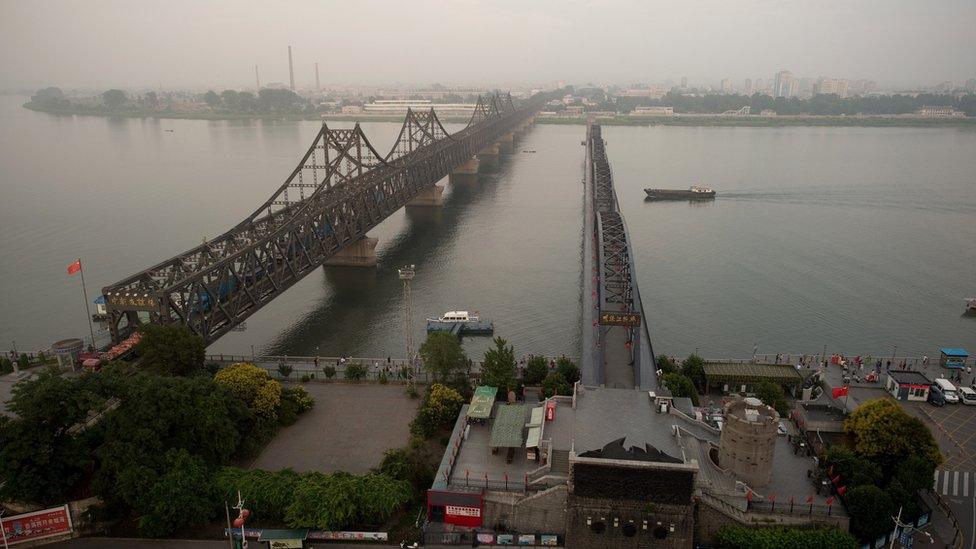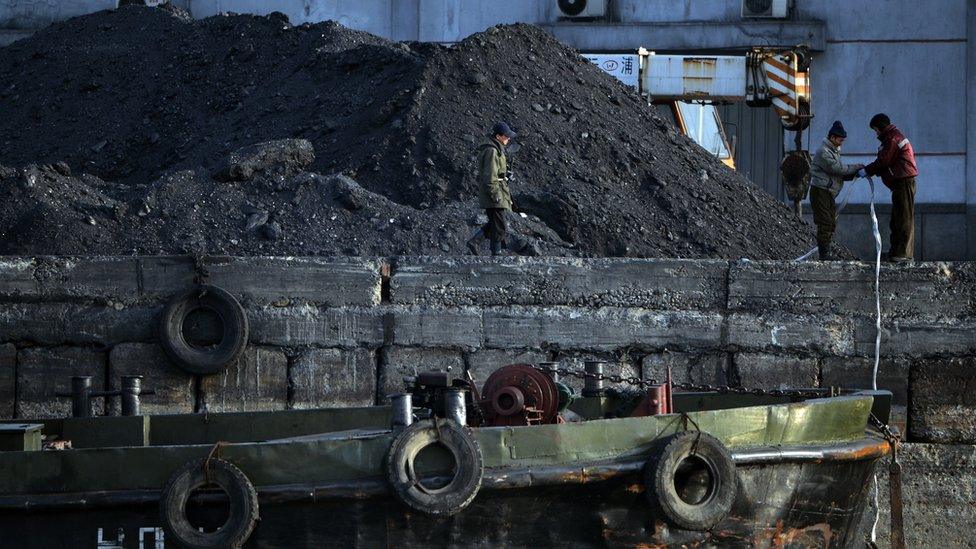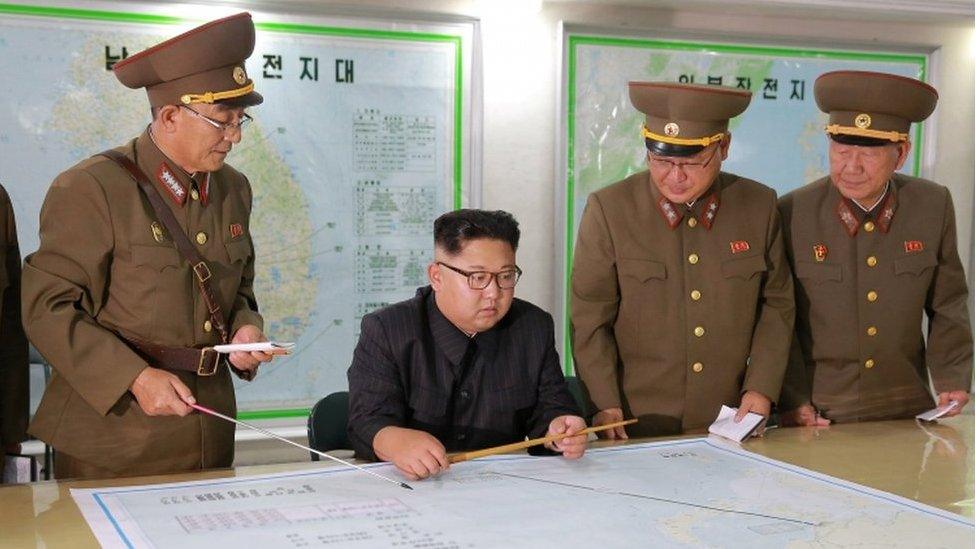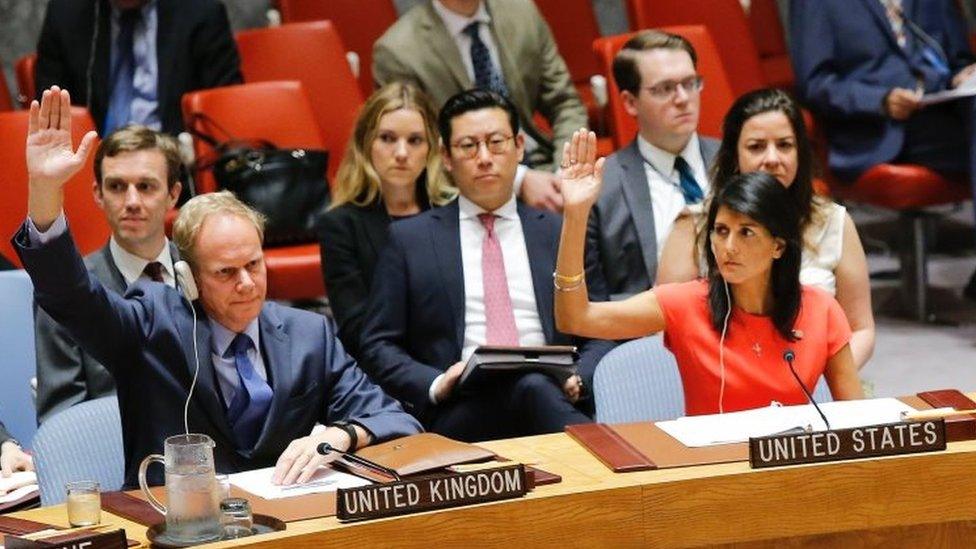China imposes import bans on North Korean iron, coal and seafood
- Published

Bridge over the Yalu river near Dandong, which is where most goods cross between the two countries
China is to stop importing coal, iron, iron ore and seafood from North Korea.
The move is an implementation of UN sanctions, which were imposed in response to North Korea's two missile tests last month.
China accounts for more than 90% of North Korea's international trade.
Beijing had pledged to fully enforce the sanctions after the US accused it of not doing enough to rein in its neighbour.
Economic impact
The UN approved sanctions against Pyongyang earlier this month that could cost the country $1bn (£770m) a year in revenue, according to the figures provided to the Security Council by the US delegation.
Although China's coal imports from North Korea totalled $1.2bn last year, the figure will be much lower this year because China had already imposed a ban in February, experts said.
"China has already imported its quota of coal under sanctions for 2017. So no net impact there, and North Korean exports to other countries are minimal," said David Von Hippel, from the Nautilus Institute -a think tank based in Oregon -who has researched North Korea's coal sector.

North Korean labourers work beside coal mound near the Yalu River
The sanctions might have more of an impact on iron and seafood, experts said.
Although they are both much smaller sources of export revenue for North Korea, the two industries have seen a rise in exports this year.
Iron ore exports grew to $74.4m in the first five months of this year, almost equalling the figure for all of 2016. Fish and seafood imports totalled $46.7m in June, up from $13.6m in May.
The sanctions do not apply to the growing clothing assembly industry in North Korea.
Mr Von Hippel said in gross terms, it is nearly as large as coal, but in reality it is worth much less because North Korea has to import the inputs.
Trade and security tensions
The sanctions come against a backdrop of increased tensions between the US and North Korea, as well as heightened trade tensions between the US and China.
After weeks of heated rhetoric between the US and North Korea, on Tuesday North Korea's leader Kim Jong-un has decided to hold off on a strike towards the US territory of Guam, state news agency KCNA reported.
The apparent pause in escalating tensions comes after US President Donald Trump warned of "fire and fury like the world has never seen" if Pyongyang persisted with its threats.
On Monday, the US President Donald Trump ordered a trade probe into China's alleged theft of US intellectual property, which the Chinese state press saw as an attempt to force China to act more decisively on North Korea.
Officially, the US has denied any link between the two issues, although the president had previously suggested he might take a softer line on China in exchange for help on North Korea.
- Published15 August 2017

- Published7 August 2017
